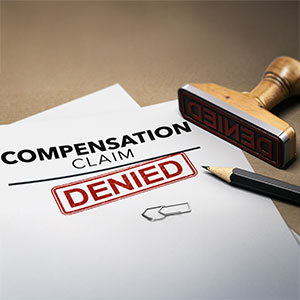Appeal Reverses Ruling On Fraud Upon The Court
Personal InjuryIn the case of Duarte v. Snap-On, Inc. (Fla. 2d DCA Case Number 2D15-1952), the Second DCA reversed a dismissal for fraud upon the court.
How Is Fraud Upon The Court Decided?
Fraud upon the court has recently been a frequent tactic for defense firms and insurance companies to avoid settling cases completely as well as to scare others into settling. In Florida, the trial judge has the “inherent authority” to dismiss a plaintiff’s case when the plaintiff has committed a fraud upon the court. Dismissal is regarded as the most severe of any sanction that a plaintiff can receive and is supposed to be reserved only for extreme circumstances.
To dismiss a case for fraud upon the court, the judge should hold an evidentiary hearing and take evidence into the record that shows by clear and convincing evidence that a fraud has in fact been committed.
Essentially, the legal standard is that the fraud upon the court must:
sentiently set in motion some unconscionable scheme calculated to interfere with the judicial system’s ability to impartially adjudicate a matter by improperly influencing the trier of fact or unfairly hampering the presentation of the … defense.
Factual inconsistencies and false statements are common and are normally managed with impeachment or negative inferences on the evidence.
So What Happened In This Case And Why Did The Court Reverse The Dismissal?
Mr. Duarte was driving on I-75 with his girlfriend, daughter, son, and grandson in the car when they were hit from behind by a truck operated by a Snap-On Tools. The accident must have been severe because Mr. Duarte’s girlfriend was rendered a paraplegic and settled for “many millions of dollars.” Mr. Duarte’s son and grandson also were reported to have sustained injuries and recovered smaller, but still sizeable settlements. The driver from Snap-On Tools was charged with DUI with serious bodily injury as a result of the crash.
Thereafter, Mr. Duarte filed a lawsuit. Snap-On Tools admitted liability and the only dispute that remained was that of causation of injuries and the extent of damages (the value of his case). During the litigation, Mr. Duarte was involved in a traffic incident at a stop sign and the parties to the lawsuit disputed the severity of that incident as well as whether there was any injury from it.
As with virtually all lawsuits, Mr. Duarte was required to answer interrogatory questions about his injuries and any other events that may have caused injuries to him. In response to a question about other accidents, Mr. Duarte answered “not that I remember.”
Afterward, Mr. Duarte’s deposition was taken where he stated that he had not been involved in any other accidents but made a reference to the incident at the stop sign after the lawsuit was filed and said that he was not sure whether that incident was considered an accident.
Shortly before trial, Snap-On Tools filed a motion to dismiss the case for fraud upon the court attaching the interrogatory answers and the deposition transcript saying that Mr. Duarte provided false testimony to mislead the defense. Mr. Duarte claimed that he did not consider the traffic incident an accident and that he had some degree of memory failure due to his age and medications. Unfortunately, the trial judge granted Snap-On’s motion to dismiss without taking evidence.
Lack Of Evidence And Harshness Of Trial Ruling
Overall, the Second DCA was likely motivated by the fact that no evidence was actual taken by the trial court to reach the conclusion that a fraud has been committed and that the accident was severe enough to paralyze Mr. Duarte’s girlfriend. Additionally, the fact that Snap-On admitted liability also proved that there must be at least some merit to Mr. Duarte’s injury claim even if he was involved in a subsequent accident.
As mentioned above, the mere fact that a person gets the facts wrong or has a failure of memory is not normally enough to justify a dismissal for fraud upon the court. Even bad or obvious factual inconsistencies or failures of memory are generally not enough. Again, the standard is that you must be doing it on purpose to mislead the defense.
In this particular case, the defense was very aggressive and took advantage of the fact that there was a second traffic incident as a way to deflect blame for their much more serious accident. Even if the subsequent traffic incident aggravated Mr. Duarte’s condition, the severity of the original accident combined with an admission of liability should have been enough to where Mr. Duarte should get some compensation from the original accident.
Further, even though Mr. Duarte failed to remember the subsequent traffic incident when he gave written interrogatory answers (which are always vague and very broad), Mr. Duarte did disclose that incident in his deposition testimony when the questions were likely much clearer as to what information was sought.
Therefore, a motion to dismiss for fraud upon the court is not supposed to be a “gotcha” moment in your personal injury case. Instead, it is supposed to be reserved for cases where the plaintiff falsely testified on purpose and with the intent to deceive the defense out of a valid argument should the case go to trial. That simply did not happen here.
Contact A Lakeland Personal Injury Attorney About Your Case
If you have been injured and would like help with your case, you should contact a Lakeland personal injury attorney for a free review of your case. If your personal injury case has merit, then we will help you with no fees or costs unless money is recovered for you.


